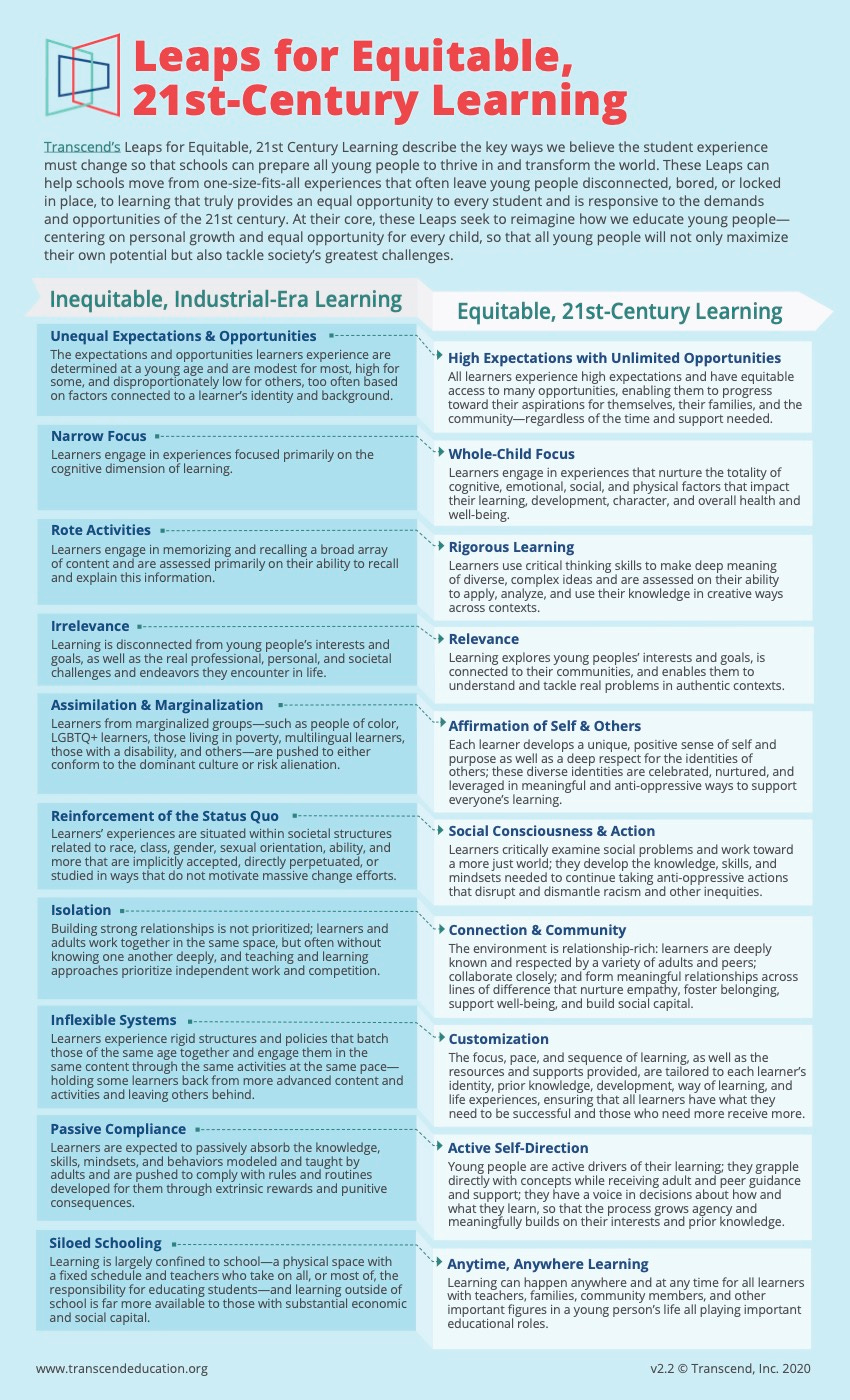Welcome back to the Education Policy Hotlist!
Before we dive into this week’s news, I’d like to share a valuable resource and seek your help.
Cindi Williams, a colleague who inspires me profoundly, recently delivered a powerful TedTalk about founding Learning Heroes and empowering parents. She discusses how report cards can misrepresent students’ academic progress and advocates for families to ask a pivotal question: “Is my child on grade level in reading and math?” This inquiry prompts a transparent, cooperative dialogue with teachers, who can then provide assessment data to support and empower parents in advocating for their children.
Learning Heroes piloted this approach in various cities nationwide, discovering that when parents realized report cards only offer a snapshot of their children’s progress, nearly half engaged further with teachers for additional insights. Without precise, standardized data on our children’s school performance, we cannot advocate effectively and secure the necessary support for them.
Having heard Cindi recount her experience numerous times, each instance reinforces my desire for Oregon families to access this knowledge. I am dedicated to equipping Oregon families with the necessary tools to initiate these crucial conversations. Please let me know if you’re interested in supporting this initiative at its conceptual stage:
Don’t forget to follow us on Instagram, Facebook, Linkedin, and Twitter!
Mark Your Calendars
Education Commission of the States is hosting a webinar to review Governors’ State of the State Addresses trends. Join them on Thursday, March 14 at 1:00 p.m. (MDT). Register here. View the governors’ proposals here.
Education Reform and Equity
Transcend launches a new framework for equitable and engaging education
Transcend’s new initiative, Leaps for Equitable, 21st-Century Learning, outlines critical changes needed to transition from a one-size-fits-all education system to a more personalized and equitable model. The program emphasizes the importance of high expectations and equal opportunities for all students, aiming to prepare young people to thrive in today’s world and transform our future. For education policy, this represents a call to reshape learning environments to be more inclusive and responsive to each student’s needs and potential. The framework points to 10 core “leaps” that school systems can change to design learning environments that transform our industrial-era school models.
Most segregating school districts analyzed in new report and map
New America released a new report from their Education Funding Equity Initiative, Crossing the Line: Segregation and Resource Inequity Between America’s School Districts. The study examines around 25,000 neighboring school districts, revealing how boundaries contribute to significant economic and racial segregation, leading to vastly disparate educational resources and student experiences, even in adjacent neighborhoods. Additionally, it includes personal accounts from local educators and families, shedding light on the impact of these disparities. This analysis underscores the need for policy interventions to address the educational inequities that district borders can exacerbate. States must address interdistrict divides at ground level to allow students to learn in diverse school systems whose funding levels match student needs, not local property values.
This release comes with three major components that you need to check out:
The full report—Analyzes segregation and resource inequality between neighboring school districts, featuring first-person storytelling from members of affected school communities.
Multimedia story—A short-form, interactive presentation of national research findings on economic and racial inter-school district segregation and local stories of segregation and inequality; it lays out what these divides mean in practice for American school districts and communities.
Interactive national map—A national map and data explorer that allows users to explore American school districts, district boundaries, and critical data points.
Policy Priorities
Governors focus on diverse education priorities for 2024
Future Ed’s latest analysis of 38 addresses from the State of the State reveals that governors across the United States will prioritize a diverse range of education policies in 2024, including early childhood, curriculum, school choice, and mental health. Despite heightened partisan tensions and election-year politics, the bipartisan efforts reflect substantial educational investments and practical ways to strengthen learning. Here are some of the numbers:
“Fifteen governors from both sides of the aisle argued that college shouldn’t be students’ only postsecondary option and proposed ways to provide alternative pathways after high school.”
“Eleven governors on both sides of the aisle addressed student mental health and youth behavioral concerns, supporting school- and community-based approaches.”
“The leaders of 17 states announced plans to expand dual high school-college enrollment, lower the cost of associate degrees, and increase scholarship opportunities.”
Twenty-one governors proposed initiatives to increase teacher compensation, address shortages, and expand recruitment efforts.
Debate over ‘science of reading’ bill for English learners
In California, two key advocacy groups for English learners oppose Assembly Bill 2222, which mandates reading instruction aligned with the ‘science of reading.’ The bill, introduced by Assemblywoman Blanca Rubio, aims to ground reading instruction in research. Still, opponents fear it may not serve English learners well and could undermine the state’s literacy progress. This opposition is significant for education policy as it highlights the complexities of creating legislation that meets the diverse needs of all students across the continuum of policy development, implementation, and evaluation.
Some notes: There are a lot of assumptions about the bill and current teaching practices rooted in the science of reading. Many states would benefit from collecting information about their teachers’ literacy instruction practices, like how much time is spent on phonemic awareness or phonics — the reality is likely very different from the politicized assumptions and narratives. Check out NCTQ’s latest policy-to-practice guide that gives states tools and examples.
Tutoring
High-impact tutoring shows promising results in DC
A recent study from the National Student Support Accelerator highlights the effectiveness of high-impact tutoring in improving student attendance in Washington, D.C., with the most significant gains seen among those who had previously missed 30% or more of the school year. The study found that middle school students attended an additional three days, and elementary students improved by two days. This improvement in attendance due to high-impact tutoring could influence education policy by encouraging the integration of such programs into school curriculums to address learning loss and absenteeism.
Sustaining high-impact tutoring beyond federal funding
The white paper “Accelerate Learning Now” from Saga Education discusses the urgency of finding alternative funding sources for high-impact tutoring programs as federal emergency funds, like the ESSER Fund, are set to expire. It emphasizes the critical role of states and localities in financing learning recovery and sustaining evidence-based practices such as high-impact tutoring, which have shown substantial gains in student learning. This report’s insights are pivotal for education policy, signaling a shift towards long-term investment strategies in tutoring programs to maintain the progress in addressing COVID-related learning interruptions.
Students with Learning Differences
Rethinking autism therapy standards
A recent article raises concerns about the effectiveness and potential mental health harm of Applied Behavior Analysis (ABA), a widely used autism therapy. Critics, including researchers and individuals who underwent ABA as children, are questioning the long-held belief in ABA’s efficacy, suggesting that it may not work for all and could seriously harm patients’ mental health. This scrutiny could lead to significant shifts in education policy, prompting a reevaluation of therapeutic approaches for autism and potentially broadening the spectrum of supported therapies.
Addressing absenteeism among students with disabilities in Minneapolis
A new report reveals a troubling increase in chronic absenteeism among students with disabilities in Minneapolis Public Schools, with over 1,600 special education students regularly missing school. The data shows a rise in absenteeism from 29% in 2019 to 53% in 2022, then slightly decreasing to 46% in 2023, with some schools reporting rates as high as 80%. This significant issue in attendance highlights the need for education policies that specifically address the barriers to regular school attendance for students with disabilities.
Data, Assessment, and Accountability
Embracing innovation in assessment design
A new Center for Assessment blog post discusses the challenges and opportunities of innovative test design, especially in the context of peer review and meeting federal requirements. It highlights the need for assessments that comply with regulations and effectively measure student learning and progress. This conversation is crucial for education policy as it underscores the importance of balancing innovation with accountability in developing new assessment models. This article is helpful because author Nathan Dadey outlines how his perspective has changed and provides readers with an example to consider.
Call for proposals: Learning Curve essay series
The Urban Institute has announced a call for proposals for the Learning Curve essay series, seeking early evidence on the effects of local PK–12 and postsecondary education policies and programs, particularly those enacted post-pandemic with federal relief funds. The selected authors will receive a $2,500 honorarium and support to publish their essays on urban.org. This initiative highlights the importance of timely data in shaping education policy and the need for rigorous analysis of recent education interventions.
Dr. Christine Pitts is an executive leader advancing evidence-based public policy for social impact. Follow her on LinkedIn and Instagram for more updates.










